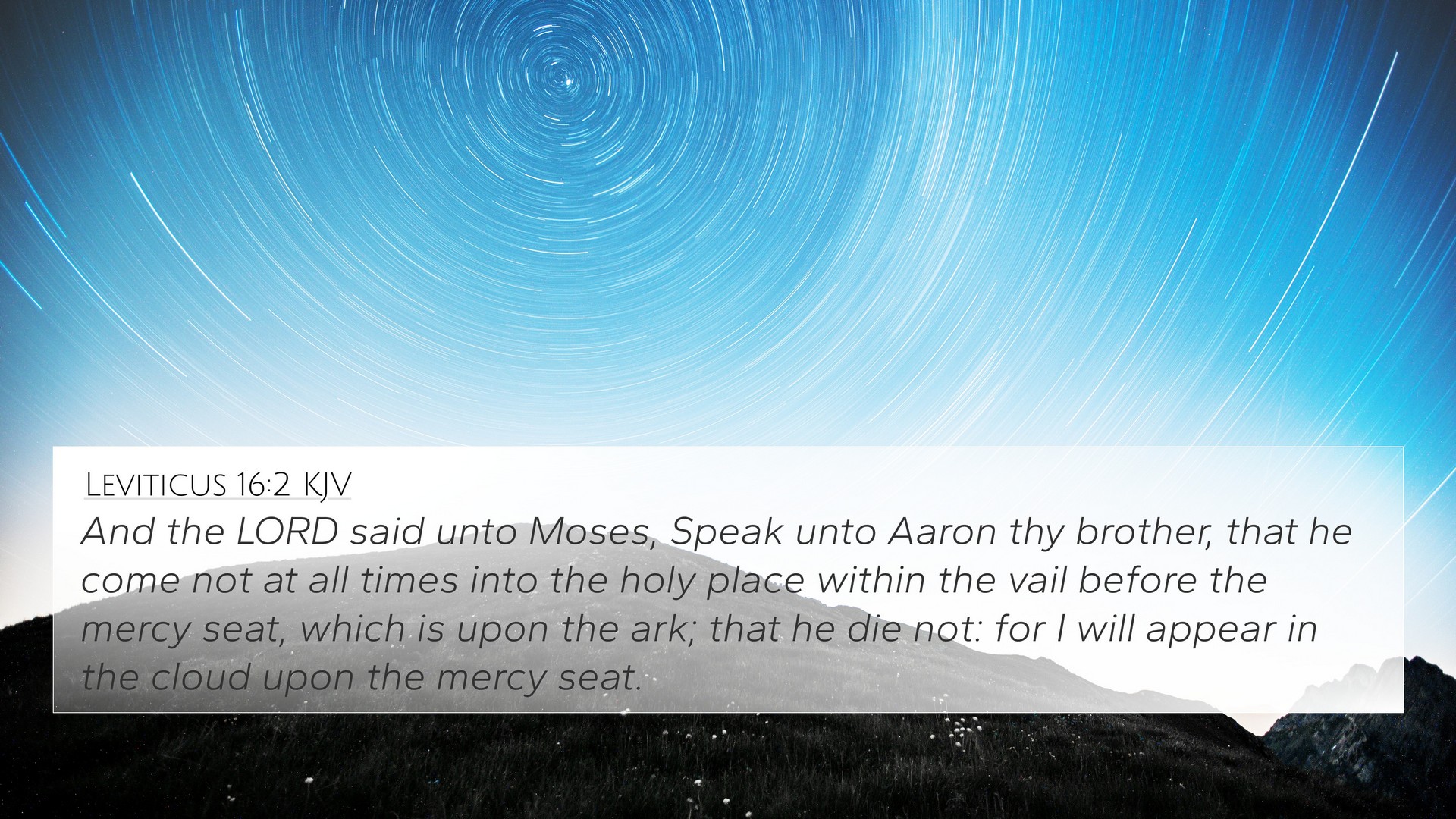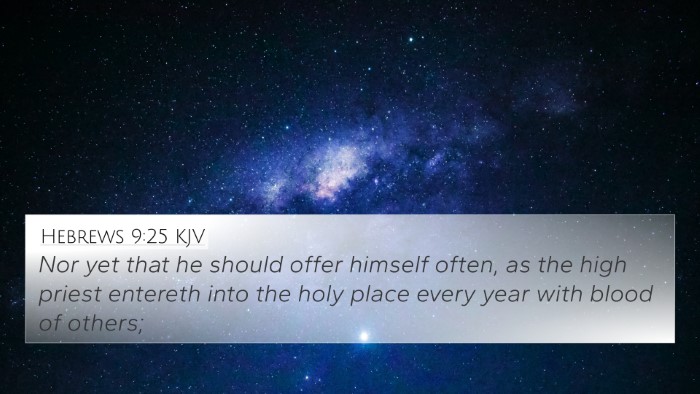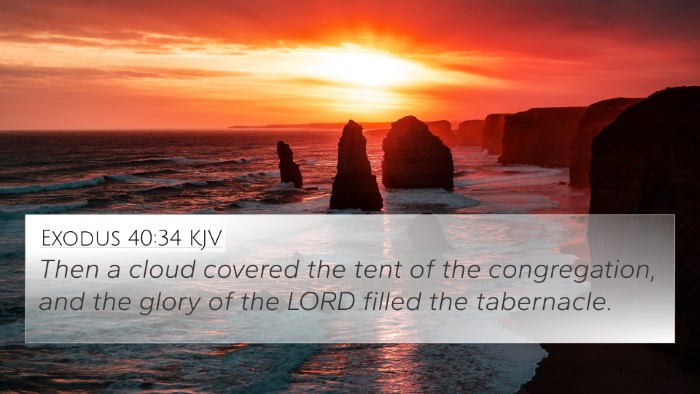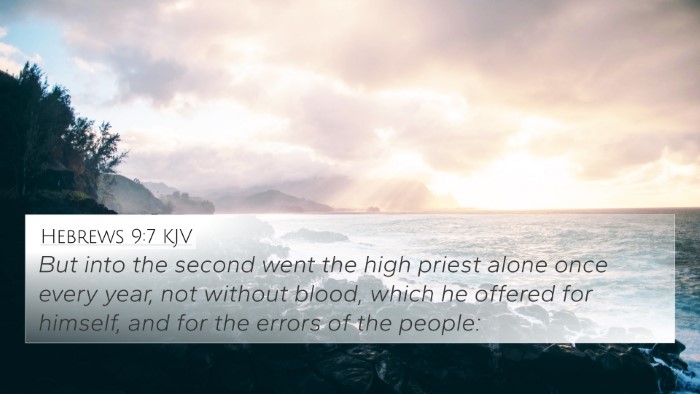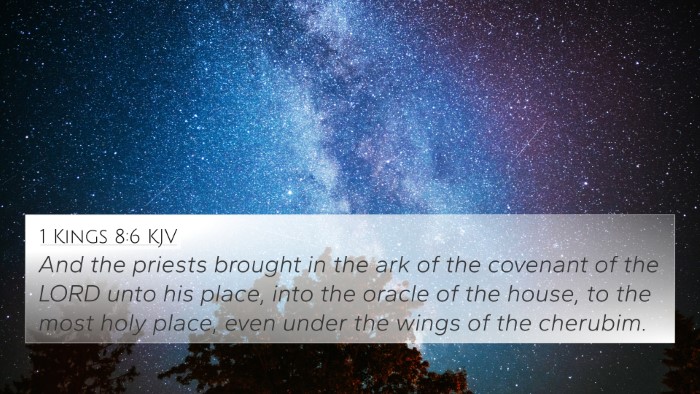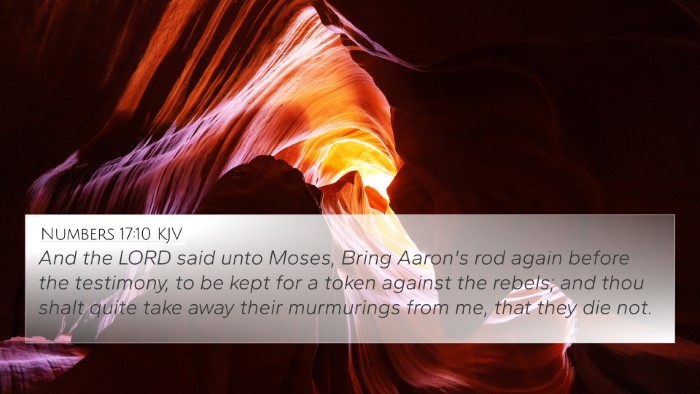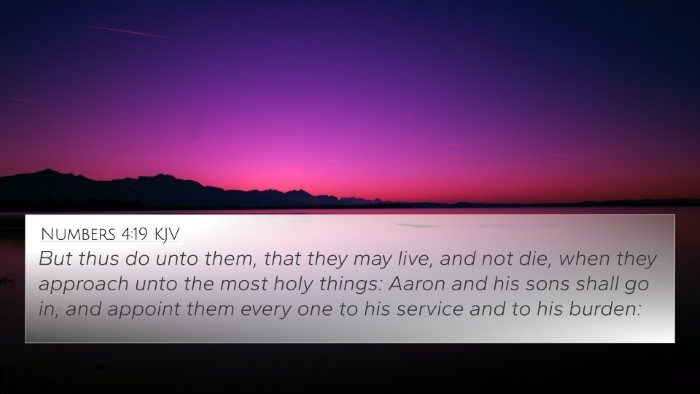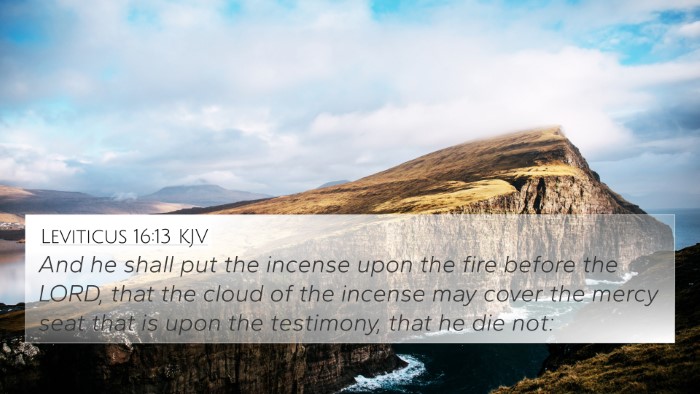Understanding Leviticus 16:2
Verse: Leviticus 16:2 — "And the LORD said unto Moses, Tell Aaron thy brother, that he come not at all times into the holy place within the vail before the mercy seat, which is upon the ark; that he die not: for I will appear in the cloud upon the mercy seat."
Meaning and Interpretation
This verse serves as a significant instruction from God to Moses regarding the sacred duties of Aaron, the High Priest. It sets the stage for the Yom Kippur (Day of Atonement) rituals and emphasizes the holiness of God's presence. Below are insights derived from various public domain commentaries:
Matthew Henry's Commentary
Matthew Henry highlights the direct command from the Lord, putting forward the gravity of Aaron's responsibilities. The verse underscores the necessity of proper conduct when approaching God's throne of grace. The reference to coming "not at all times" signifies the exclusive and holy nature of the encounter with God's presence, warning of severe consequences should it be treated lightly.
Albert Barnes' Notes
Albert Barnes elaborates on the concept of God’s appearance in the holy place. He notes that the "cloud" represents God's glory and presence, which is not something to be approached carelessly. The instructions serve to protect Aaron and underscore the sanctity of the location within the tabernacle. The emphasis on the “mercy seat” indicates that while God is a God of justice, He is also a God of mercy, crafting a balance of fear and reverence.
Adam Clarke's Commentary
Adam Clarke notes the theological implications of this command. Clarke explains that this passage sets boundaries for approaching God, emphasizing a healthy fear of God’s holiness. In doing, Clarke points out that it presents a necessary image of reliance on God’s mercy, which is represented by the “mercy seat.” His commentary suggests that this verse foreshadows the ultimate sacrifice of Christ, who fulfills the need for atonement once and for all.
Thematic Connections
This verse can be cross-referenced with various key Biblical passages that share thematic connections regarding holiness, sacrifice, and the presence of God:
- Hebrews 9:7: Discusses how the High Priest went into the second part of the tabernacle once a year, which connects to the restriction mentioned in Leviticus 16:2.
- Exodus 30:10: Outlines the atonement and the importance of blood, highlighting how Aaron must interact with the holy things cautiously.
- Isaiah 6:5: The vision of God's holiness that results in Isaiah's reaction emphasizes how encountering God’s presence weighs heavily on one’s conscience.
- 1 Peter 1:15-16: References the call to holiness, mirroring the concept of approaching God reverently.
- Psalm 99:9: Exalts the Lord as holy, connecting the idea of God's holiness to the context of Leviticus 16.
- Romans 3:25: Speaks to Christ as the sacrifice of atonement, linking back to the mercy seat's significance.
- John 14:6: Jesus declares Himself as the way, truth, and life, facilitating access to God's presence, paralleling the merciful function of the mercy seat.
Practical Implications
This verse teaches modern readers the importance of reverence when approaching God. It highlights the need for atonement and symbolizes the smooth transition to the New Testament understanding of direct access to God through Jesus Christ. The theme of God's grace amidst His holiness serves as a fundamental principle in biblical theology.
Cross-Referencing Resources
For deeper study and exploration of the themes presented in Leviticus 16:2, consider utilizing the following tools:
- Bible Concordance: Look up related terms and conduct a thematic study.
- Bible Cross-Reference Guide: Use this tool to draw connections between related scripture passages.
- Cross-Reference Bible Study: A method for exploring the interconnectedness of Biblical texts.
Conclusion
Leviticus 16:2 serves as a reminder of God's holiness and the importance of approaching Him with reverence. These themes resonate throughout scripture, establishing critical connections between Old and New Testament teachings. Approaching study with a focus on cross-referencing can deepen one's understanding of biblical texts and their implications for faith and practice.
